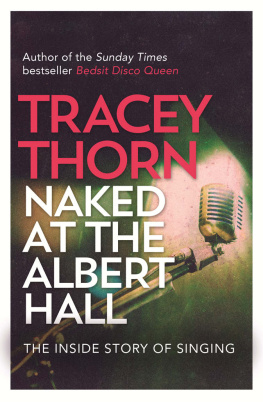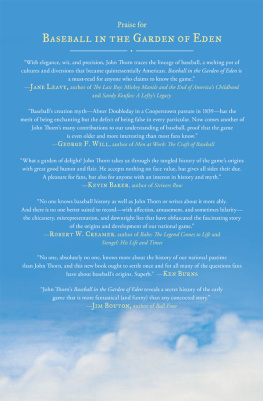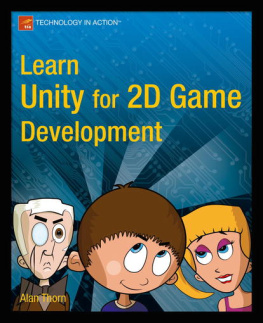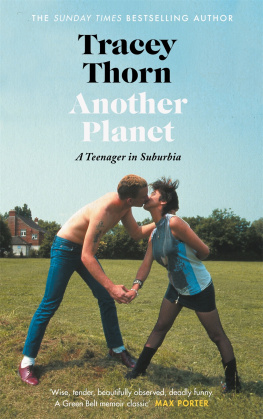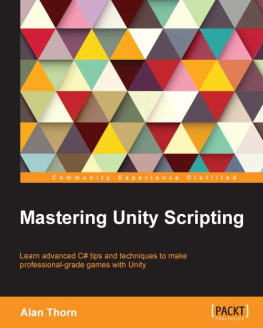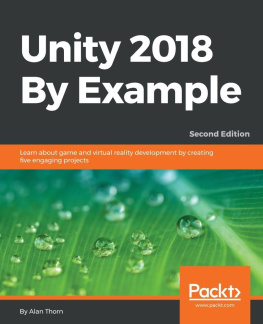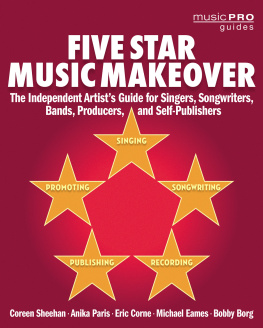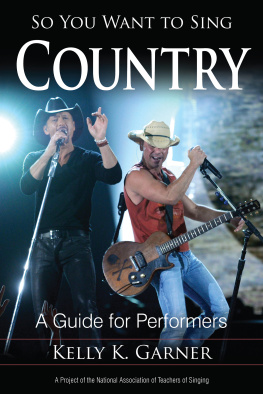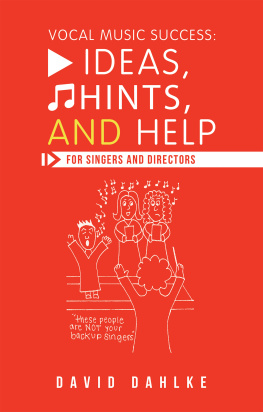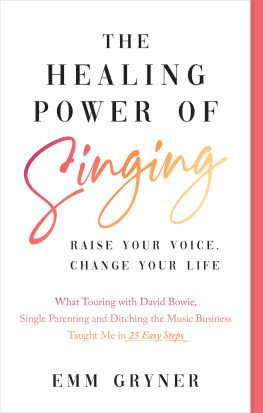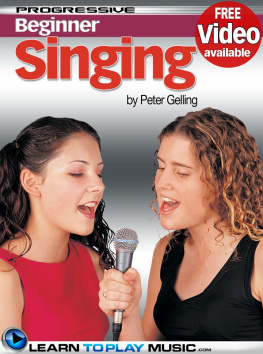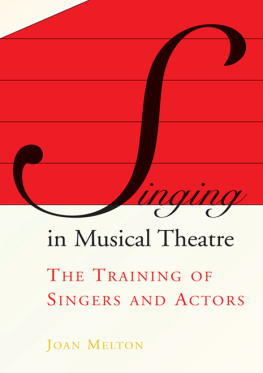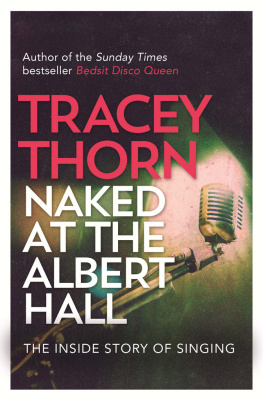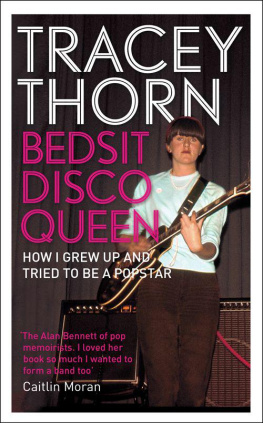The moral right of the author has been asserted.
All rights reserved. No part of this publication may be reproduced, stored in a retrieval system, or transmitted, in any form or by any means, without the prior permission in writing of the publisher.
The publisher is not responsible for websites (or their content) that are not owned by the publisher.
W e love singing, dont we? Both doing it and listening to it. We sing when were happy and celebrating Happy Birthday to You and we sing when were down, in an attempt to keep our spirits up. We sing when were bored, to try and make the time pass faster silly songs on coach trips, repetitive songs on long walks. Like whistling in the dark, we all sing together sometimes when were afraid, soldiers marching in unison to Its a Long Way to Tipperary; and we choose songs to make light of things that are unutterably gloomy Im reminded of the end of the film The Inn of the Sixth Happiness , when Gladys Aylward (Ingrid Bergman) leads her orphans over the mountains and to safety, all bravely singing, This old man, he played one, he played knick-knack on my thumb
We sing to elevate sporting events Abide with Me, Swing Low, Sweet Chariot; we sing when were winning Were on our way to Wembley; and when were losing, others remark on our silence by singing themselves Youre not singing any more. We sing all together on the dancefloor, even if you cant hear us, and after a few drinks well get up with a karaoke microphone and sing so you can hear us. At big concerts we sing along en masse, and we like nothing better than being given the chance to join in a call-and-response with our heroes on stage, echoing them, copying phrases they give us.
We sing at serious occasions, too; in church, at weddings, christenings, funerals. We form choirs, to sing either hymns and classical pieces, or vocal arrangements of rock songs. Were encouraged nowadays to join in, whether or not we feel we can really sing. Its good for us, apparently; a recently published piece of research suggests that, like meditation, singing has a relaxing effect on the body, lowering blood pressure and thus helping us along the path to a longer, healthier life. Another study claims that singing exercises could strengthen the throat muscles and somehow ease snoring. And its good for us too: morally uplifting, an improving activity. Classical music has been linked with ideas of morality since the eighteenth century, and the teaching of singing became at least in part an exercise in fostering good behaviour. Music as morality and singing as discipline were at the very root of Victorian church music, writes John Potter in his book Vocal Authority , and singing became an important part of infant school education. Along with jam-making, the Womens Institute became famous for its communal singing of Jerusalem at meetings. A bit self-important, a bit goody-goody, it was what put my mum off for life the first time she went. Unable to take seriously the sight of a group of housewives solemnly intoning William Blakes hymn, she got a fit of the giggles, and never returned.
And yet, despite the fact that we do it all the time, when people are asked what talent they would most like to have, they often answer that they wish they could sing. Its a shared dream, a fantasy talent. A skill, like being able to speak another language, or paint, which we feel would free us, define us, make us more entertaining and interesting, and more able to express ourselves. We elevate singing above many other activities, often endowing it with an almost religious significance, and believe that both in singing, and in listening to others sing, we can experience something transcendent. So we mythologise and romanticise singing and singers, seeming to hold it up as a skill both more difficult and rarer than it actually is talent show auditions reveal that in fact quite a lot of people can sing; its not as unique as we tend to assume. This elevation of singing is a romantic notion, and can be flattering if you happen to be a singer yet also strangely reductive. When we regard singing as an instinctive and wholly emotional act, we narrow down our understanding of what it is and what singers are. If we think of it as simply a primal outpouring of feeling, then we miss the elements of conscious control and decision-making that go into singing, and which can make the difference between boring singing and interesting singing. I dont mean to deny the emotional aspect, but what I do often find myself pointing out is: theres more thinking in singing than you might think.
These are the thoughts that have led me to write this book. Its not intended to be Part Two of my memoir, Bedsit Disco Queen , in which I described much of my career in music, but it is connected. In writing an autobiography there is inevitably a certain amount that gets left out. You have to settle on a tone of voice, and a stance, in order to avoid merely compiling a long list of things that happened; and with Bedsit Disco Queen , my chosen stance was all to do with my attempts to make myself fit in a world the music business which I more or less stumbled into. It was a book about ambivalence, and the quest for personal identity; about love of music and awkwardness with music; about fame and strangeness and the attempt to cling to some kind of normality. What it wasnt, particularly, was a book about being a singer, and after Id written it some people asked me why I hadnt said much about singing in places skating over the very aspect of my life that has publicly defined me, and often referring only in passing to how I feel about singing and what it means to me. I left certain details out, because I wanted to write a book that was pacy, and funny, and kept moving forward, and had moments of introspection without getting bogged down in them. But having written that book, I feel that I can step back and slow down, and take a longer look at some of the thoughts that I filed away in a corner of my mind, hoping to come back to them later. Some of the things I want to say in this book are almost footnotes to Bedsit Disco Queen , or digressions on subjects that it briefly alighted on. Conversations that I half started, or alluded to, but raced past without finishing. Or thoughts that only occurred to me later.
This book might seem personal and idiosyncratic, but thats because its not a journalists investigative exploration of the story of singing, or an academics all-inclusive encyclopedia. Its more a compendium of insights which I havent often seen recorded or discussed; alternative takes on aspects of singing which are taken for granted. The fact, for instance, that as the person doing the singing, you can drift towards feeling resentful of the idea that you are simply in possession of a natural gift, and that there is an artlessness to the occupation you are known for. Singing is a physical activity as much as an emotional one, and though the sound is produced in the very core of your body from the lungs, right next to the heart the brain is always involved too. Decisions are being made all the time, ones which require attention and focus settling on the range in which youre going to sing, which part of your voice youre going to use, your pronunciation, accent, inflection, sense of rhythm, volume, dynamics These are constants ongoing operational decisions which may feel instinctive, or become second nature through practice and habit, but which are nonetheless mental and intellectual activities, not simply happy accidents. There are technical choices, too, involving microphones and headphones, setting up volume and balance, and moving in and out from the microphone to alter the sound. All these things have an effect on performance. And the question of taste not only in what songs to sing, but

